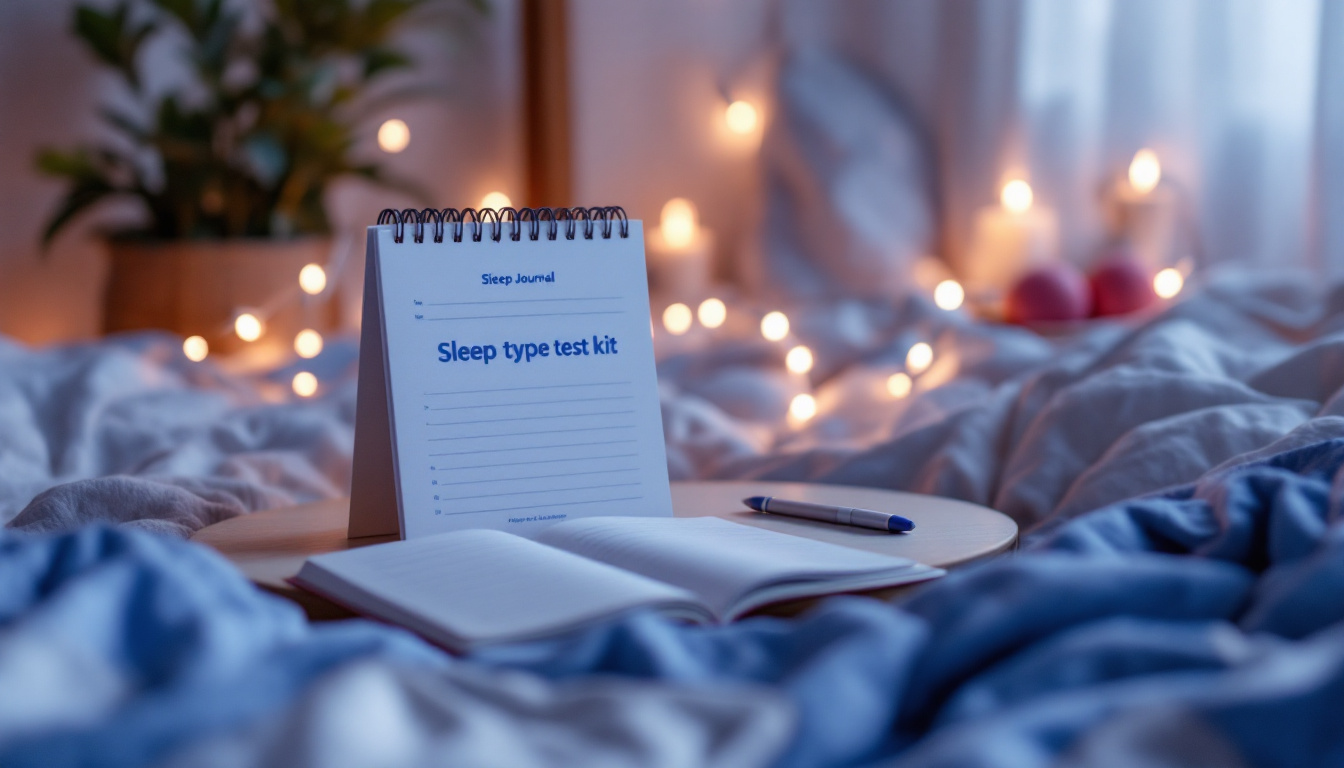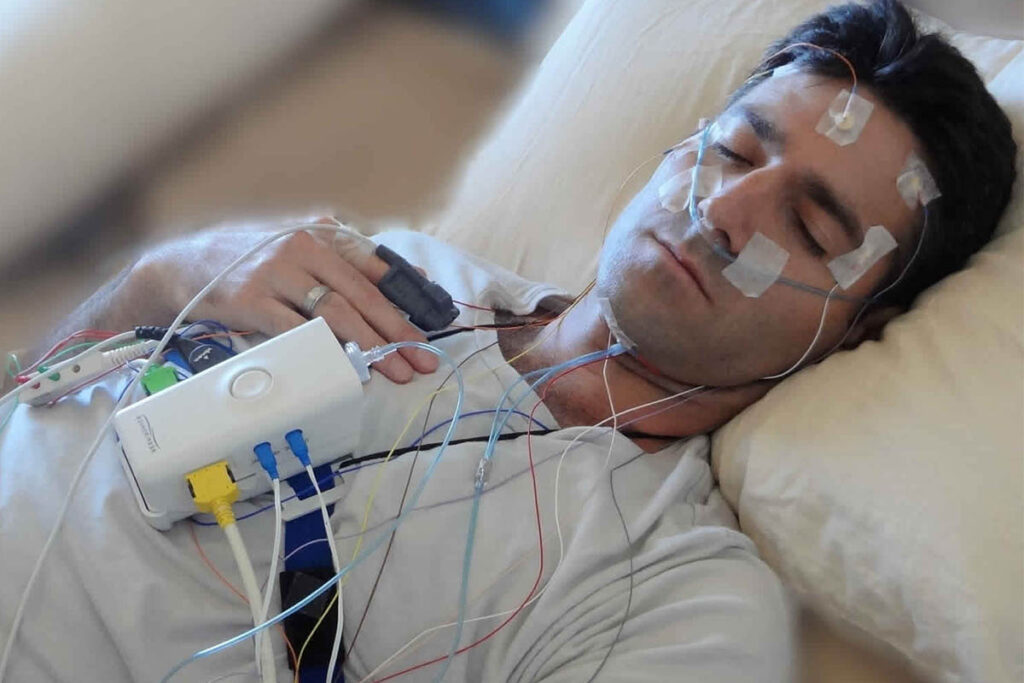Understanding Sleep Type Tests
A sleep type test is a diagnostic tool designed to assess an individual’s sleep patterns, preferences, and behaviours. By evaluating various factors such as sleep duration, quality, and disturbances, these tests aim to identify specific sleep types. This information can be invaluable for anyone struggling with sleep issues or simply looking to optimise their sleep quality.

There are several methods through which sleep type tests can be conducted. Some tests are self-administered questionnaires, while others may involve monitoring sleep patterns through wearable devices or sleep studies conducted in a clinical setting. Regardless of the method, the goal remains the same: to provide insights that can lead to improved sleep.
Types of Sleep Tests
Sleep type tests can be broadly categorised into two main types: subjective assessments and objective measurements. Subjective assessments typically involve questionnaires that ask about sleep habits, lifestyle, and preferences. These can help identify patterns and potential issues based on the individual’s responses.
A sleep type test can be a valuable tool for anyone seeking to enhance their sleep quality. By understanding your sleep type, you can implement targeted strategies to improve your sleep hygiene, tailor your lifestyle choices, and address any underlying sleep disorders. Whether you are an early bird, a night owl, or somewhere in between, taking the time to assess your sleep patterns can lead to significant improvements in your overall well-being.
On the other hand, objective measurements often involve the use of technology, such as polysomnography or actigraphy. Polysomnography is a comprehensive sleep study that records brain waves, oxygen levels, heart rate, and breathing, while actigraphy uses a wrist-worn device to monitor sleep-wake cycles over an extended period. Both methods provide valuable data that can inform sleep improvement strategies.
In addition to these primary testing methods, there are also emerging technologies that are enhancing our understanding of sleep. For instance, some innovative apps now utilise artificial intelligence to analyse sleep data collected from smartphones or smartwatches, offering personalised insights and recommendations for better sleep hygiene. These advancements not only make it easier for individuals to track their sleep but also provide a more nuanced understanding of how lifestyle factors, such as diet and exercise, can impact sleep quality.
Furthermore, the psychological aspects of sleep are gaining recognition in the realm of sleep studies. Cognitive behavioural therapy for insomnia (CBT-I) is a structured programme that helps individuals address the thoughts and behaviours that contribute to sleep difficulties. By incorporating elements of both subjective assessments and objective measurements, CBT-I can be a powerful tool for those looking to enhance their sleep experience. This holistic approach acknowledges that sleep is not merely a biological process but is also intertwined with emotional and mental well-being, thus broadening the scope of sleep type tests beyond mere data collection.
The Importance of Identifying Sleep Types
Understanding your sleep type can provide significant benefits, particularly for those who experience sleep disturbances. By identifying whether you are a night owl, an early bird, or somewhere in between, you can tailor your lifestyle and sleep environment to better suit your natural tendencies.
For instance, if you are a night owl, it may be counterproductive to force yourself to wake up early for work or other commitments. Instead, adjusting your schedule to allow for later sleep and wake times could lead to improved mood, productivity, and overall well-being.
Improving Sleep Hygiene
Once your sleep type has been identified, you can take actionable steps to enhance your sleep hygiene. Sleep hygiene refers to a set of practices and habits that are conducive to sleeping well on a regular basis. This includes maintaining a consistent sleep schedule, creating a relaxing bedtime routine, and optimising your sleep environment.

For example, if you discover that you are a light sleeper, you may benefit from blackout curtains, white noise machines, or other strategies to minimise disturbances. Conversely, if you are a deep sleeper, you may need to focus on ensuring that you wake up at the right time to avoid grogginess.
How Sleep Type Tests Can Help You Sleep Better
Taking a sleep type test can lead to a deeper understanding of your sleep patterns and preferences, which can ultimately help you achieve better sleep quality. By identifying your sleep type, you can make informed decisions about your lifestyle, environment, and bedtime routines.
Moreover, understanding your sleep type can also help you recognise if you are experiencing any sleep disorders. Conditions such as insomnia, sleep apnea, and restless leg syndrome can significantly impact sleep quality. By pinpointing your sleep type, you may be better equipped to discuss your concerns with a healthcare professional and seek appropriate treatment.
Tailoring Sleep Strategies
Once you have a clearer picture of your sleep type, you can start to tailor your sleep strategies accordingly. For instance, if you find that you are a light sleeper, you might want to avoid caffeine and heavy meals close to bedtime. Alternatively, if you are a night owl, you could implement strategies to gradually shift your sleep cycle to align more closely with societal norms, if necessary. Read more about caffeine at https://www.ncbi.nlm.nih.gov/books/NBK519490/
Additionally, knowing your sleep type can help you choose the right sleep aids or techniques. For example, if you struggle with anxiety that affects your sleep, mindfulness practices or cognitive behavioural therapy for insomnia (CBT-I) may be beneficial.
Common Sleep Types and Their Characteristics
Understanding the different sleep types can help individuals relate their experiences to broader categories, making it easier to identify their own sleep patterns. Here are some common sleep types and their characteristics.
The Early Bird
Early birds tend to wake up early and feel most alert in the morning. They often find it easier to go to bed early, which can be advantageous for maintaining a regular work schedule. However, early birds may struggle with social activities that extend late into the evening, potentially leading to feelings of fatigue.
The Night Owl
Night owls, on the other hand, thrive during the evening and often find it challenging to wake up early. This can lead to conflicts with traditional work hours and social commitments. Night owls may benefit from adjusting their schedules gradually to find a balance that works for them.
The Intermediate
Those who fall somewhere in between early birds and night owls may be classified as intermediates. They tend to have a more flexible sleep schedule and can adapt to various situations. However, understanding their sleep type can still help them optimise their routines for better sleep quality.
Implementing Changes Based on Your Sleep Type
Once you have identified your sleep type, the next step is to implement changes that can enhance your sleep quality. This may involve adjusting your daily routine, sleep environment, or even your diet.
For early birds, maintaining a consistent sleep schedule is crucial. This means going to bed and waking up at the same time every day, even on weekends. Creating a calming bedtime routine can also signal to the body that it is time to wind down.
For Night Owls
Night owls may need to gradually shift their sleep schedule to accommodate early commitments. This can be achieved by setting a consistent bedtime and waking time, as well as limiting exposure to screens before bed. Engaging in relaxing activities such as reading or meditation can also help ease the transition.
For Intermediates
Intermediates can benefit from a flexible approach, but it is still important to maintain a consistent sleep schedule. They may experiment with different routines to find what works best for them, ensuring they are attentive to their body’s signals.
Consulting with Professionals
While sleep type tests can provide valuable insights, it is important to recognise that they are just one part of the puzzle. For individuals experiencing persistent sleep issues, consulting with a healthcare professional is essential. Sleep specialists can offer tailored advice and treatment options based on individual needs. Click here to find more about issues.
In some cases, sleep disorders may require more comprehensive evaluations, such as polysomnography or cognitive behavioural therapy. These interventions can provide deeper insights and more effective solutions for improving sleep quality.
When to Seek Help
It is advisable to seek professional help if sleep issues persist despite making lifestyle changes. Symptoms such as excessive daytime sleepiness, difficulty falling or staying asleep, or loud snoring may indicate underlying sleep disorders that require medical attention.
By collaborating with healthcare professionals, individuals can develop a comprehensive sleep plan that addresses their unique needs and challenges, ultimately leading to better sleep and improved overall health.
Conclusion
Ultimately, better sleep is within reach. By utilising the insights gained from a sleep type test and consulting with professionals when necessary, individuals can take proactive steps towards achieving restful and restorative sleep.
Read about sleep study refferal at: How to Get a Sleep Study Referral and What to Expect
